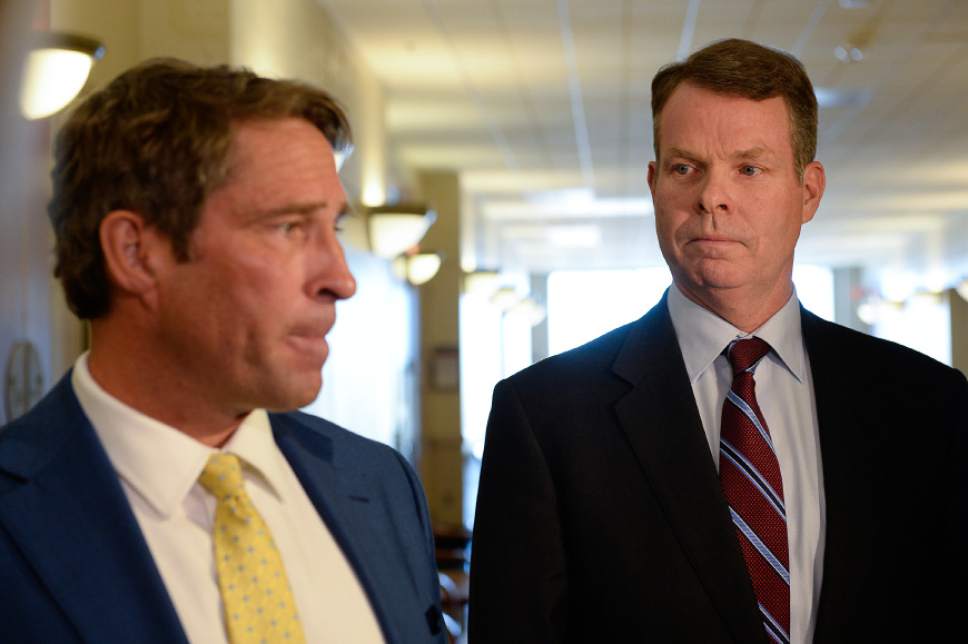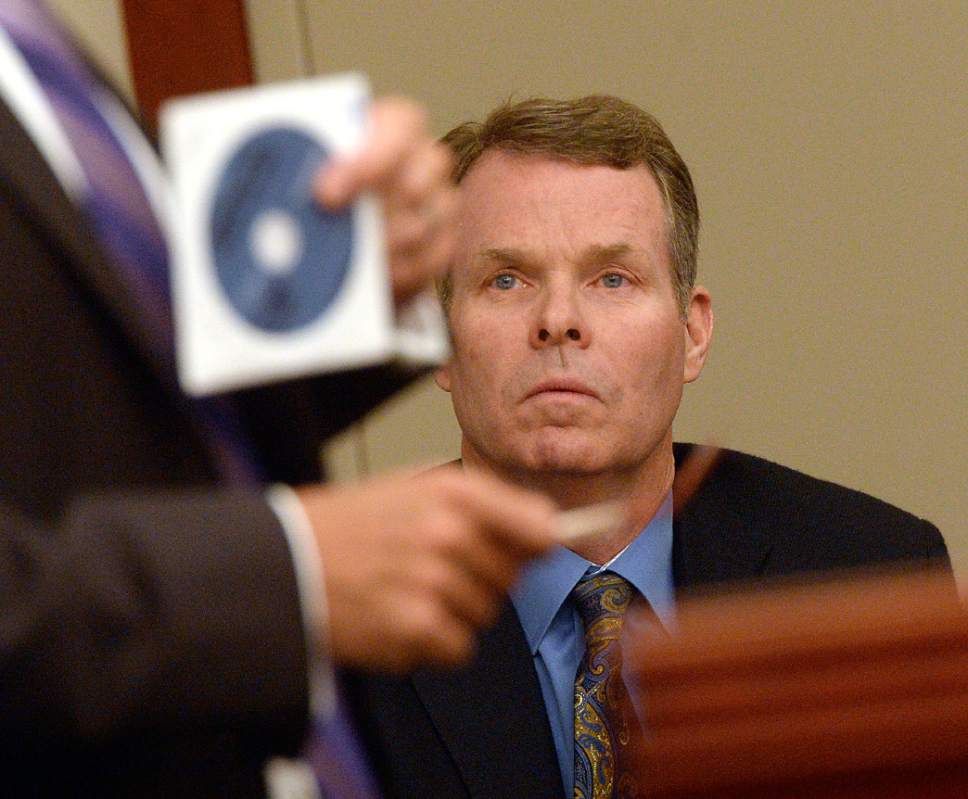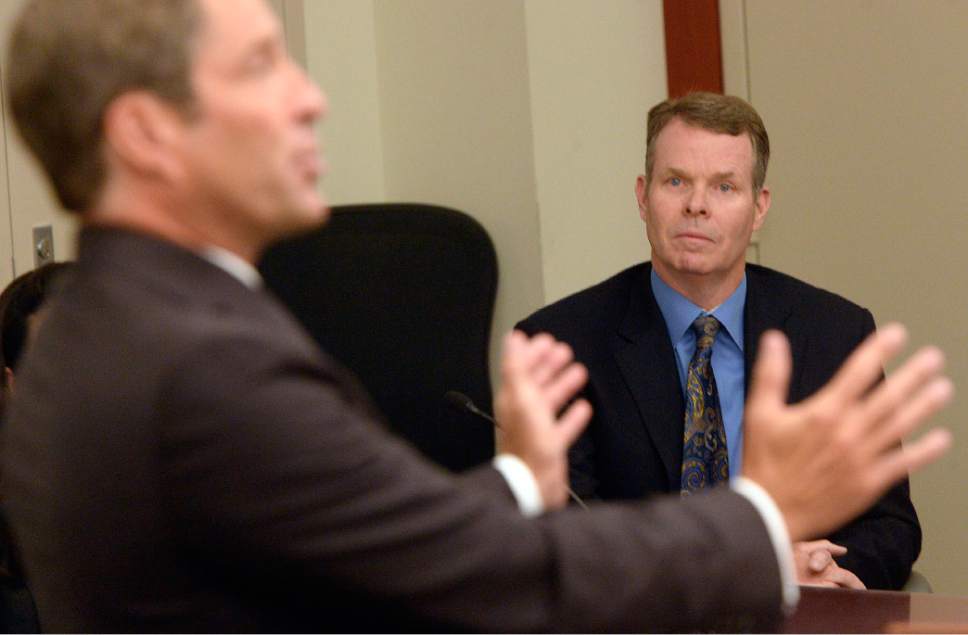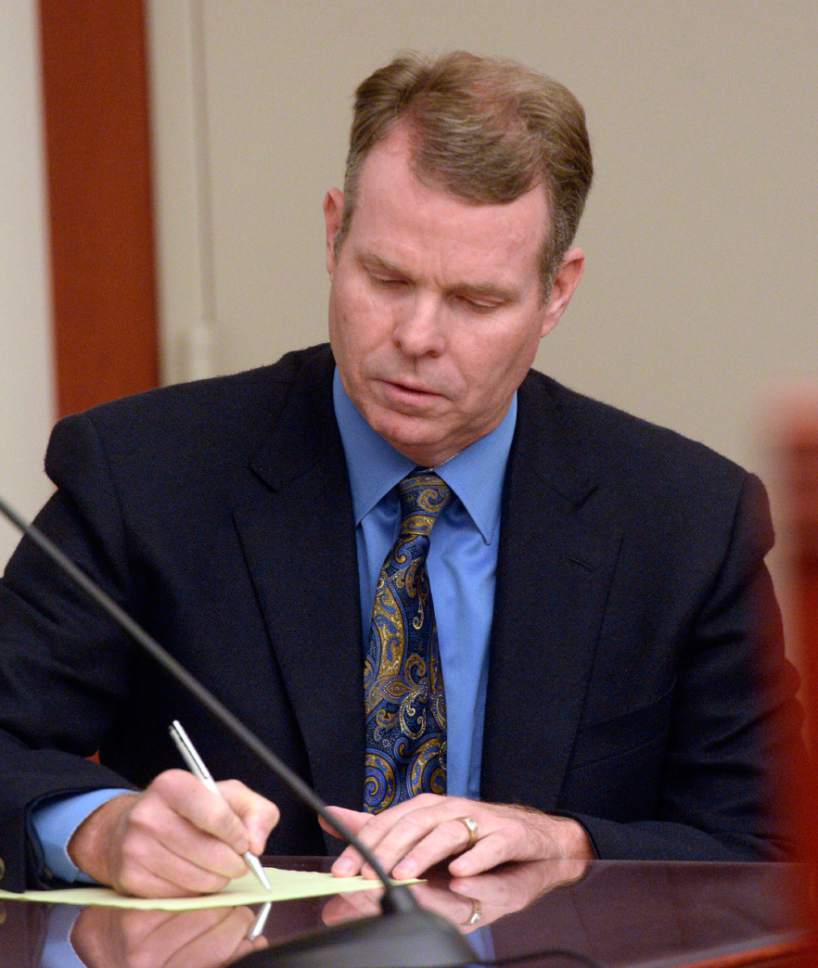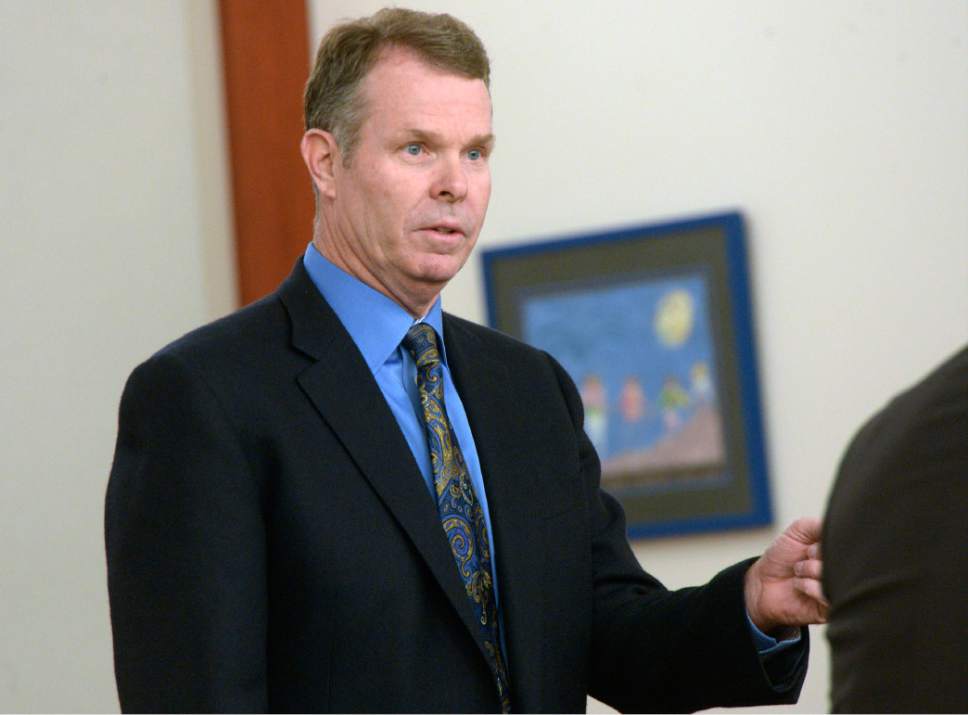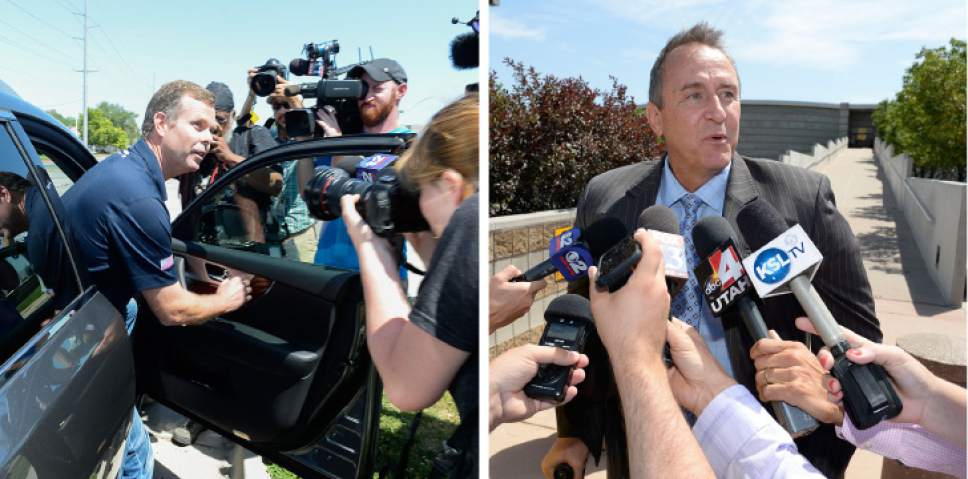This is an archived article that was published on sltrib.com in 2016, and information in the article may be outdated. It is provided only for personal research purposes and may not be reprinted.
The Utah Supreme Court will now decide whether to weigh in on former Attorney General John Swallow's assertion that his constitutional rights were violated when prosecutors and investigators seized his protected email communications with a defense lawyer.
On Friday, the Utah Court of Appeals forwarded to the justices Swallow's request for a pretrial review.
State prosecutors filed documents this week arguing it was too soon for the former attorney general to ask for such a review. Instead, they wrote, the 2-year-old public corruption criminal case should first reach its resolution through the trial set for February 2017.
"Granting review now will protract — not shorten — this litigation," the Utah solicitor general wrote.
Both sides, however, are in agreement that the state's high court should hear the case at some point, because it is said to be a first-of-its-kind in Utah.
Third District Judge Elizabeth Hruby-Mills, who will oversee the trial, sided with Salt Lake County prosecutors, who said the email intrusion was not intentional and that the communications had not been read or used.
Swallow has also asked the appeals court to order an evidentiary hearing so his lawyers can question prosecutors and investigators, a request that Hruby-Mills has rejected.
State attorneys also oppose an evidentiary hearing.
Swallow, who was Utah's attorney general for less than a year, is charged with multiple crimes stemming from allegations of corruption and bribery.
In a 2014 raid of his home, investigators seized his computers and other e-devices containing more than 12,000 emails, some of them protected communications between Swallow and his then-attorney Rodney Snow.
His current defense team discovered the emails had been commingled with other evidence during keyword searches earlier this year and sought a dismissal of the case, asserting Swallow's constitutional right to counsel and a fair trial had been breached.


